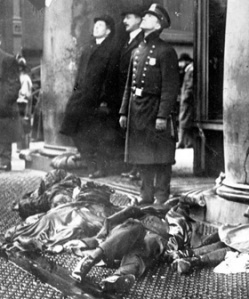Background
In the 2014 edition of the United States, prudent people don’t criticize the state of Israel, nor do they praise hipsters.
Certainly, I have no intention of casting aspersions Israel’s way; however, as imprudent as it might be, I have decided to attempt an apologia for hipsterdom, that haven for non-alphas where unconventionality breeds a sort of countercultural uniformity that many find off-putting. What interests me most about this topic is the degree of animus the word “hipster” engenders among several acquaintances and one very good friend, who, ironically, might be the hippest person I know.
A while back, I started to notice a proliferation of on-line deprecations of hipsters, and when the post office version of this month’s Atlantic arrived, I checked out James Parker’s piece “The Twee Revolution” in which he attempts to understand “the strangely persistent modern sensibility that fructifies in the props of Wes Anderson movies, tapers into the waxed mustache ends of young Brooklynites on bicycles, and detonates in a yeasty whiff every time someone pops open a microbrewed beer.”
“Consider the cultural degradation of the ‘hipster’ [Parker goes on to say] — once a jazz-and-orgasms spirit warrior with battle hymns by Norman Mailer, now a dude with a funny hat rooting through a bin of used vinyl.”
What’s so insidious about wearing funny hats or preferring vinyl to CDs? Why so much contempt for someone doing so little actual harm?
Etymology
By the way, if you’re unfamiliar with the derivation of hip, it comes from hep, a jazz term originating in the ’40’s, a term describing an avant garde aficionado of hot jazz and/or bebop (as opposed to swing), in other words. a cat or chick in the know, or as Cab Calloway would put it, a cat or chick who got their boots on. Somehow hep morphed into hip, though I have also read that hip as a synonym for cool might owe its derivation to the posture of the habitués of opium dens who lay on their sides (i.e., hips) as they toked their hookahs.

mid- 20th Century hipsters
Cab Calloway, who published in 1940 The Hepster Dictionary, would not necessarily physically recognize the person Mr. Parker describes above as a hep cat; however, the hep cat of Cab’s day and Parker’s hipster do share some common characteristics.
Here’s a Wikipedia copped quote from Frank Tirro’s Jazz A History that describes 1940 version of hipster: “He is amoral, anarchistic, gentle, and overcivilized to the point of decadence.”
Anecdotal Evidence

typical Tuesday at Chico Feo (featuring self- portrait by the artist)
I brought up Parker’s article at Chico Feo, the hippest bar in the most bohemian town in South Carolina, and wondered aloud why so many people hate hipsters so.
Suddenly, Charlie, the most affable of bartenders (and who sports a Whitmanesque beard[1]) launched into a passionate denunciation of the subculture, of its uniformity, its too-cool-for-you-ness.
John, sitting across the bar from me and rolling a cigarette, joined in on the spirited dissing.
Their antipathy genuinely surprised me. These two rather unconventional-looking men’s animus for hipsters probably rivaled, or even surpassed, your typical frat boy’s.
“C’mon,” I say, “they’re not as nearly bad as your typical, entitled, swaggering Lacrosse jock. I never hear about hipsters inviting strippers to parties where alleged sexual assaults take place. These assholes certainly deserve to be hated more than hipsters.”
As my luck would have it, Charlie played lacrosse in high school.
John’s disgust with hipsters seemed to lie in their lack of utilitarian usefulness. “They’re caught up in this fake world of bullshit,” he said. “They’re not living in the real world; they’re living in the cyber world. When something breaks, they don’t fix it. They throw it away and buy a new one.”
“Plus,” he added, “They’re always multi-tasking, doing four things at once. You can’t multi-task. You can only do one thing well at a time.”
The fog of one too many high gravity micro brews was starting to roll in, so I didn’t do a good job of expressing the sentiment that comes immediately to mind after typing John’s response: so what? It’s not as if they caused the Great Recession through avarice and idiocy and walked away scott free with billions in their offshore bank accounts.

Easter in Brooklyn (from left to right Judy Birdsong, Wesley Moore, Jim Klein, Jim Crow)
So I got on my bike and pedaled home to call the hippest cat I know, Mr. Jim Klein, the Abstract Expressionist, who lives in Brooklyn, a subway stop or two from Williamsburg, the Ground Zero of hipsterdom. You can read about Judy and my Easter visit to Jim and his wife Sue’s loft here, but suffice to say, it’s got to be one of the most interesting domiciles anywhere, and Klein possesses an encyclopedic knowledge of jazz and the arts in general.
Mr. Klein ended up being just as down on hipsters as my barmates. “Zombies controlled by stupidity,” he called them. Echoing John, he cited their dependency on technology, their exuding a vibe of unearned superiority. In a voicemail he sent the following day, he added their sense of entitlement as a negative; they exude a sense of superiority without every having accomplished much of anything.
Possible Explanations for the Passionate Dislike
As I’m found of saying, even though I am not a psychologist, I do sleep with one, so allow me to posit a possible reason hipsters produce what seems to me such a disproportionate quantity of spleen for the petty misdemeanors of their outré aesthetic, technological proclivities, and lack of productivity.
All I can come up with is that hipsters evoke some aspect of insecurity or some shared but repressed negative characteristic the hipster-hater harbors within his or her own being.
I remember some student back in the day telling me that I reminded him of the asshole comedian Dennis Miller. “What,” I complained, “I hate Dennis Miller. He’s arrogant, sarcastic, flaunts his learning, goes out of his way to use arcane diction to prove just how effing smart he is and is needlessly vulgar.”
The student’s look screamed, “Like I said, you remind me of Dennis Miller!”
What else can it be? Skinny jeans, shitty dyed hair, vintage store dresses, leggings don’t strike me as any more pernicious than Ralph Lauren polos or those garish Hawaiian shirts geezers of my generation sport. Why not hate surfers as much — they, too, lead hedonistic lifestyles, sport their own types of uniform, engage in their own distancing argot.
Surfers tend to be attractive — or at least fit. Maybe, the hipsters’ tendency to flip off fashion also contributes to their unpopularity. Rumor has it even hipsters with 20/20 vision sport clunky horn-rims for effect. Maybe the fact that this dweeby, pasty, pink-haired girl thinks she’s cooler than her bleached blonde beauty queen cousin is what drives some people to foam at the mouth.
Personal History
I attended Summerville High School, an institution where football is taken as seriously as Ayatollahs take Ramadan. Especially, when I was there, if you weren’t a jock, particularly a football player, you were a lesser being. The star players and cheerleaders, on the other hand, were celebrities. Jerry Reese, the starting quarterback, once told me near the school bus line-up, “Hey that little guy just told his friend, ‘that’s Jerry Reese.’” Also, it goes without saying that some of the players (not Jerry) were bigoted, bullying assholes.
In 1969, I started hanging out with an iconoclast named Tim Miskel, swapped out my alpaca sweater for a blue jean jacket, cultivated my anger by straining it through irony, and ended up abandoning my childhood friends for a new set, Summerville’s first hippies, people like Adam Jacobs, Gray Eubank, Jack McDonagh, Christine Richards, Glen Farrah, Margie Bradshaw, Mike Moore, among others. We, too, all more or less dressed alike and received much First World abuse for our unconventionality. Once, my Spanish teacher asked derisively if I had gotten my shirt at the Psychedelic Shack.
Nevertheless, this subculture, I bodily state, was much more interesting than the preppie/jock Green Wave culture where virtually everyone stupidly and reflexively supported the Viet Nam War, preferred Three Dog Night to Jimi Hendrix, and were okay with school segregation.
Although I would have had trouble bench-pressing a broomstick, I could satirize school culture knowing I had a supportive band of renegades behind me. Hipness — knowing the difference between Ingmar and Ingrid Bergman — became sort of cool. After all, it offered others like ourselves an alternative path to popularity, which is what most high school students crave.
Schools desperately need countercultures, and the hipster students at my school also offer counterweights to the cult of the athlete. As it so happens, the hipsters at my school are some of my favorite students — they’re bright, interesting, skeptical, artistic.
Anyway, who am I to criticize funny hats and skinny jeans?
[1] Was Walt Whitman the very first hipster? “The scent of these armpits is aroma finer than prayer,” he writes in “Song of Myself.”

the author at the Poetry Outloud Regional Finals














